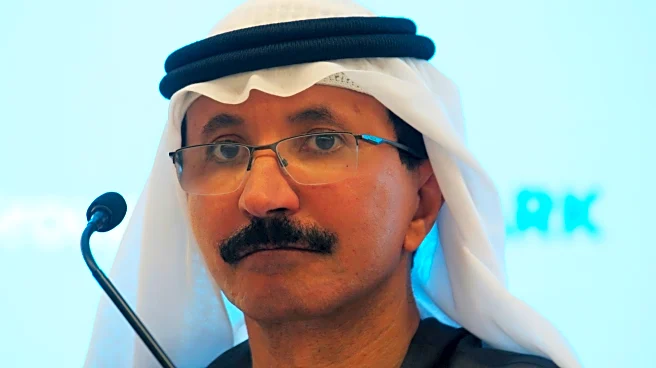Rapid Read • 7 min read
Qatar is advocating for a ceasefire in Gaza following a positive response from Hamas to a proposed agreement. The proposal, similar to one previously advanced by U.S. envoy Steve Witkoff, includes a 60-day ceasefire and negotiations for a lasting peace. However, Israel has not yet responded, as its military prepares for an offensive in densely populated areas. The situation has sparked international condemnation, with concerns about civilian safety and the fate of hostages held by Hamas. Qatar, along with other mediators, is working to broker a phased deal, but challenges remain in reaching a consensus.
AD
The ongoing conflict in Gaza has resulted in significant humanitarian crises, with thousands of civilian casualties and widespread destruction. A ceasefire could provide much-needed relief and pave the way for long-term peace negotiations. The involvement of international mediators like Qatar highlights the global stakes in resolving the conflict, which affects regional stability and international relations. The situation also underscores the complexities of negotiating with groups like Hamas and the challenges in balancing military objectives with humanitarian concerns.
Negotiations are expected to continue, with mediators pushing for a phased agreement. The potential involvement of U.S. envoy Steve Witkoff could influence the direction of talks. Meanwhile, Israel's military actions and the humanitarian situation in Gaza will remain focal points for international observers. The outcome of these negotiations could impact future diplomatic efforts in the region and set precedents for conflict resolution strategies.
The conflict raises ethical questions about the use of military force in civilian areas and the responsibilities of international actors in mediating peace. It also highlights the role of humanitarian organizations in providing aid amidst blockades and logistical challenges. The situation may influence public opinion and policy decisions regarding foreign aid and military intervention.
AD
More Stories You Might Enjoy













